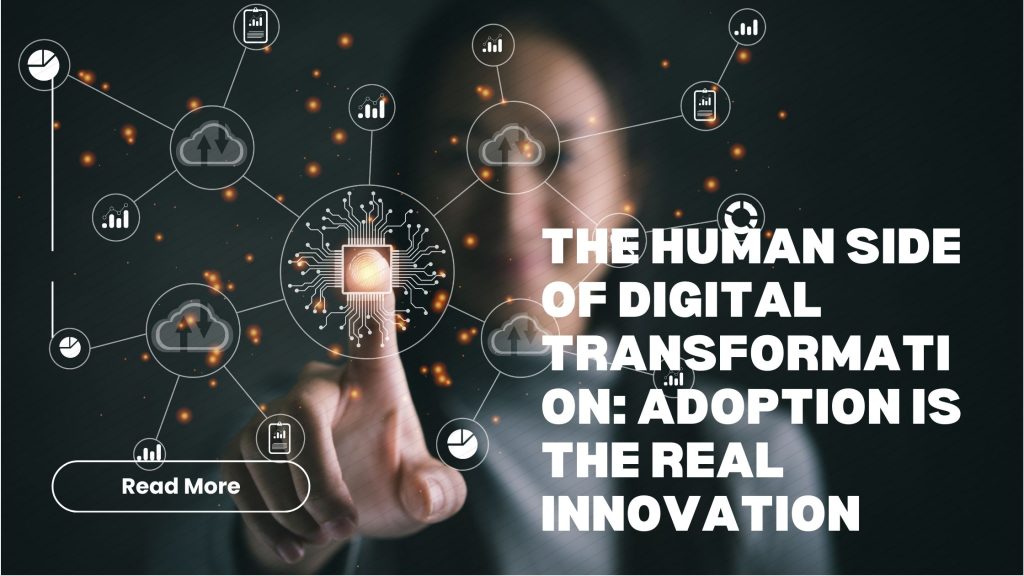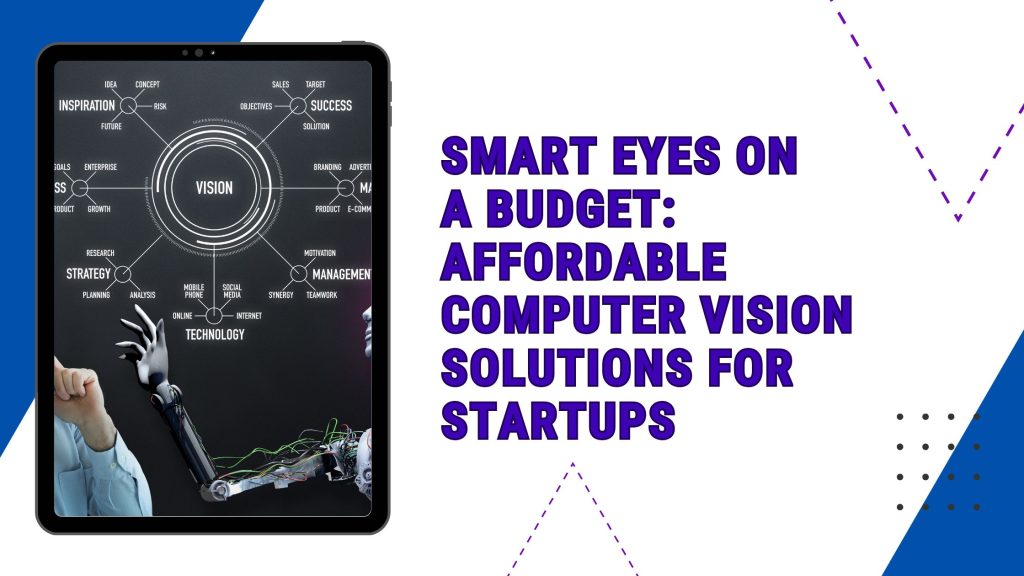The logistics industry is a complex beast, constantly evolving to meet the demands of a rapidly changing marketplace. From supply chain disruptions to last-mile delivery challenges, companies are often caught in a web of inefficiencies that can hinder their growth. As consumers expect faster and more reliable service, businesses find themselves under increasing pressure to …

Blog

Digital Transformation: It’s Not Just About Technology It’s a necessity for organizations aiming to thrive in an ever-evolving landscape. Companies are racing to adopt cutting-edge technologies that promise enhanced efficiency and better customer experiences. But here’s the twist: having the latest technology at your fingertips doesn’t guarantee success. The real innovation lies not in the …

In today’s rapidly evolving tech landscape, computer vision stands out as a game changer. For startups looking to carve their niche, harnessing the power of computer vision can unlock new opportunities and enhance user experiences. Imagine software that can analyze images, recognize faces, or even interpret videos in real-time—all on a budget! With advancements making …

As technology continues to evolve, so does the way we search for information. Voice search has emerged as a game-changer in how users interact with their devices. With smart speakers and voice assistants becoming household staples, optimizing content for these platforms is no longer optional—it’s essential. This is where Answer Engine Optimization (AEO) comes into …

If you’re currently using Squarespace for your website, you might be wondering if it’s time to make a change. While Squarespace offers sleek designs and user-friendly templates, WordPress has become the go-to platform for many businesses looking to expand their online presence. With unmatched flexibility and powerful SEO features, switching from Squarespace to WordPress can …

When it comes to developing a successful digital marketing strategy, understanding your company’s strengths, weaknesses, opportunities, and threats (SWOT) is essential. A SWOT analysis allows you to identify and analyze these key factors, which can help you make need to constantly churn out content businesses face an ever-evolving array of challenges and opportunities. To navigate …

Brand reputation is everything. It’s the foundation of your business and can make or break your company. Brand reputation is how your customers perceive you, and it affects your ability to attract and retain customers. In today’s digital age, brand reputation is One tweet, a comment on Facebook, or a review on Google can shape …

With technology evolving at breakneck speed, understanding consumer behavior is more important than ever. GEO Intelligence is redefining marketing by turning location data into actionable insights that drive results. Imagine being able to pinpoint exactly where your customers are and what they want in real time. This powerful tool has the potential to revolutionize how …

The digital marketplace knows no borders, and neither should your e-commerce business. As more consumers venture online, the demand for products and services in their native languages is rising. Multilingual SEO isn’t just a luxury; it’s becoming a necessity for brands looking to expand their reach globally. By optimizing your website to cater to diverse …

If content is king, then knowing what’s missing from your content strategy is the power behind the throne. Yet, manually identifying gaps in your content can feel like searching for a needle in a digital haystack—time-consuming, inconsistent, and often incomplete. That’s where automation steps in. In 2025, AI-driven tools and automated workflows are transforming how …
In the world of technology, few advancements have generated as much excitement and anticipation as quantum computing. Quantum computing represents a revolutionary shift in the way we process and manipulate information, offering the potential to solve problems that were previously thought to be unsolvable, and to dramatically accelerate computing power. In this article, we'll dive into the fascinating world of quantum computing, exploring its principles, applications, and the profound impact it's set to have on various fields.
Understanding the Basics
At its core, quantum computing harnesses the principles of quantum mechanics to perform computations. While classical computers use bits as the fundamental unit of information (0s and 1s), quantum computers employ quantum bits or qubits. Qubits are unique in that they can exist in multiple states simultaneously, thanks to a phenomenon known as superposition. This property enables quantum computers to process a vast amount of information simultaneously, promising unprecedented computational power.
Another critical concept in quantum computing is entanglement. When qubits become entangled, the state of one qubit instantly influences the state of another, regardless of the physical distance between them. This property opens up possibilities for quantum computers to solve complex problems with remarkable efficiency, making them ideal for certain types of tasks.
Applications
The potential applications of quantum computing are vast and span various domains:
1. Cryptography and Security
Quantum computing has the potential to break traditional encryption methods. However, it also offers the promise of quantum cryptography, which could provide unbreakable security through the principles of quantum entanglement. This could revolutionize data privacy and online security.
2. Optimization Problems
Quantum computers excel at solving complex optimization problems, such as route planning, supply chain optimization, and materials design. Industries like logistics and pharmaceuticals could benefit significantly from these capabilities.
3. Artificial Intelligence
Quantum computing has the potential to supercharge machine learning algorithms, enabling faster and more accurate AI models. This could lead to breakthroughs in natural language processing, image recognition, and more.
4. Scientific Simulations
Quantum computers can simulate quantum systems with unparalleled accuracy, offering scientists insights into molecular and atomic interactions, materials properties, and drug discovery.
Challenges and Future Developments
While the future of quantum computing is promising, it's not without its challenges:
1. Error Correction
Quantum computers are susceptible to errors due to environmental factors and the delicate nature of quantum states. Developing robust error correction techniques is crucial for their practical use.
2. Scalability
Today's quantum computers are still in their infancy, with relatively small qubit counts. Building scalable, fault-tolerant quantum processors is a significant ongoing challenge.
3. Algorithms
Developing quantum algorithms that can outperform classical counterparts in a wide range of applications remains an active area of research.
Conclusion
Quantum computing is poised to revolutionize the computing landscape, offering the potential to solve complex problems faster and more efficiently than ever before. While significant technical hurdles remain, the progress in this field is undeniably exciting. As quantum computers continue to evolve, their impact on cryptography, optimization, AI, and scientific research is set to be nothing short of transformative. Buckle up for a thrilling journey into the quantum realm of computing!


